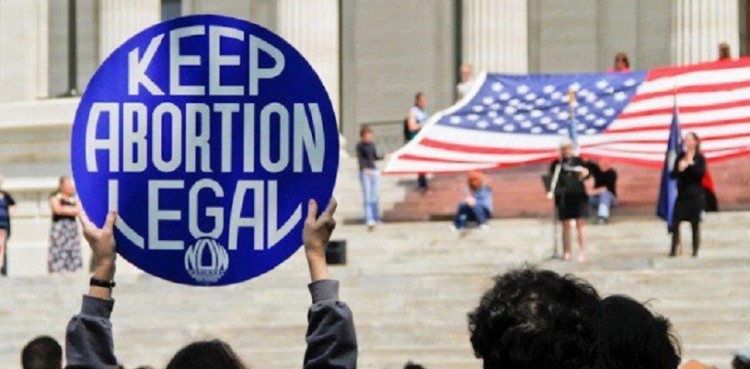
Traditionally, reproductive rights have taken a back seat to other issues in the voting booth, however the tide is turning.
Americans tend to focus more on government, economic and foreign policy issues when they cast their ballots, especially when they vote for presidential candidates.
Since Tea Party/evangelical legislators gained seats in the 2010 midterms, we’ve seen historic rollbacks in women’s reproductive rights. In fact, state lawmakers have passed over 200 regulations restricting abortion since Republicans have taken over state legislatures.
As voters watch the Republican party strip away abortion access and treat pro-choice women who take birth control as heathens, harlots and sluts, a new Gallup poll indicates voters’ priorities are shifting.
From Gallup:
Historically, Americans who self-identify as “pro-life” on the abortion issue have been more likely than self-identified “pro-choice” Americans to say they will only vote for a candidate who shares their views. However, the pro-life advantage is quite narrow in 2015, with 23% of pro-life Americans saying they will only vote for a candidate who shares their views, compared with 19% of pro-choice Americans. The gap was nine points in 2014, and it has been as high as 18 points, in late 2004.”
The percentage of pro-choice Americans who say candidates must share their views has increased by four points since 2014, and is up eight points from 2008. The only other year when pro-choice Americans were as likely as they are today to prioritize the issue was in 2001.
Half of Americans (50%) now say they are pro-choice, higher than the 44% of Americans who self-identify as pro-life. This counterbalances the slight advantage that the pro-life side has in how important, so that those prepared to only vote for a pro-life candidate versus those only voting for a pro-choice candidate are even, at about 10%.”
Add to this the questions about exactly how far states can go to restrict access to abortion services. Many state lawmakers have found a way around the Roe v. Wade ruling which made abortion safe and legal: admitting privileges and TRAP Laws – Targeted Regulation of Abortion Providers. These restrictive laws have swept the country in the last four years and the result is nearly 60 percent of women of reproductive age now live in a state with a TRAP law in place.
TRAP Laws are unnecessary and single out the medical practices of doctors who provide abortions. For example, such regulations may require that abortions be performed in more sophisticated facilities than are necessary to ensure the provision of safe procedures. Compliance with these regulations may require extensive and expensive renovations or be impossible in existing facilities, thereby increasing the cost and scarcity of abortion services, and in effect harming women’s health and inhibiting their reproductive choices.
Doctors who perform abortions must obtain admitting privileges from local hospitals – a complicated bureaucratic arrangement that is difficult for physicians to comply with. The doctors who fly in from out of state to provide abortions at Mississippi’s only clinic have not been able to obtain said privileges – which means if the law is allowed to take effect, the clinic will be forced to close.
Supreme Court justices are currently deciding to take on a case regarding a Mississippi law that could close the only abortion clinic in the entire state.
From Think Progress:
The activists who support TRAP laws are very upfront about their intentions. ‘These incremental laws are part of a greater strategy to end abortion in our country,’ Tanya Britton, a board member for Pro-Life Mississippi, told the New York Times last year in reference to her state’s admitting privilege law. ‘It’s part of it, and one day, our country will be abortion free.’”
The Supreme Court Hobby Lobby decision made it possible for businesses to restrict access to certain forms of birth control in the name of “religious freedom.”
Conservatives want to increase pregnancy rates while decreasing abortion access.
Americans have a heightened awareness about reproductive rights as we head toward 2016 and with the realization that justices will be deciding the fate of legalized abortion, voters will also take into consideration that whoever is elected president will be nominating the very justices who will be deciding this issue.

You must be logged in to post a comment Login